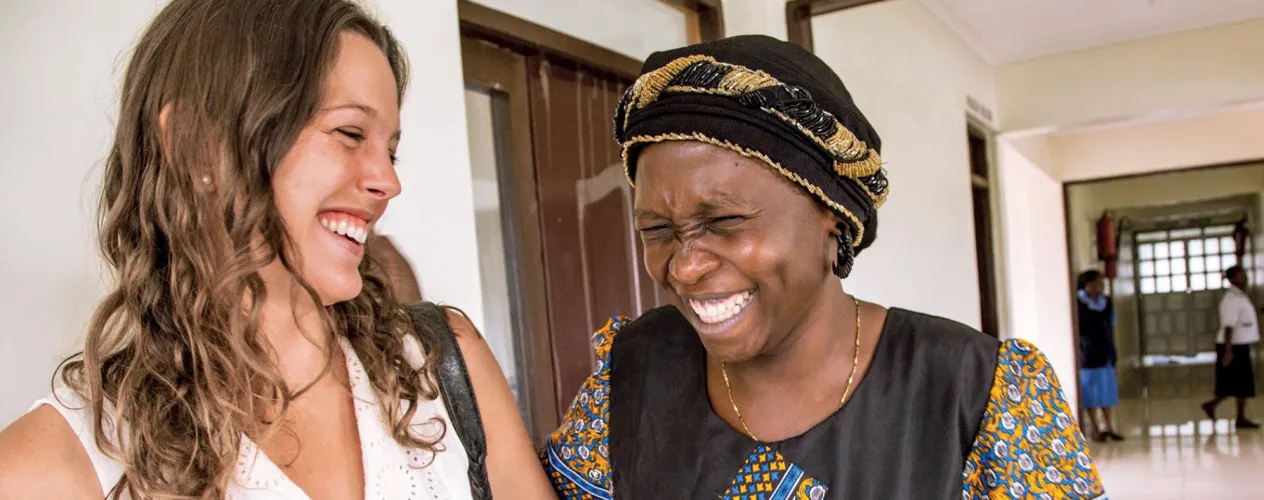Healing & Hope
FSPH alum Lindsey Pollaczek is helping to transform the lives of women in sub-Saharan Africa who have a devastating condition that has largely been eradicated elsewhere.

“Many had lived with fistula for years and had no idea it was a preventable or treatable condition.”
— Lindsey Pollaczek
MORE THAN 1 MILLION WOMEN AND GIRLS in low-income countries live with a condition that makes many of them outcasts in their communities and hinders them from earning a living. The condition is not only preventable but also highly treatable through surgery.
The condition is obstetric fistula, a complication resulting from prolonged, obstructed labor. A fistula can develop when the baby’s head pushes against the soft tissues between the bladder and vagina or rectum for such an extended period of time that it cuts off the blood supply to tissues in these areas. As a result, the tissues fall away and leave behind a hole, or fistula, that causes the woman to leak urine or feces continually. In most cases the baby is stillborn.
Thanks to improvements in obstetric care and access to timely caesarian sections, fistulas rarely happen in middle or high-income countries. But 50,000-100,000 new cases occur every year in low-income countries, according to data from the United Nations.
Lindsey Pollaczek (MPH ’12) first learned about the devastating effect a fistula can have on a woman’s life during a stint with Direct Relief, a nonprofit organization based in Goleta, California. During a 2008 trip to a hospital in Tanzania she found herself on the fistula ward, talking to women who had undergone fistula repair. “Many of them had lived with fistula for years and had no idea it was a preventable or treatable condition,” Pollaczek says. “So many women talked about the shame they experienced, being shunned by their families and husbands. One woman told me she would have rather died during childbirth than live with the devastating injury.”
The experience inspired Pollaczek to enroll in the executive-style MPH for Health Professionals program in the Fielding School’s Department of Community Health Sciences to learn skills related to program design, implementation and evaluation that she could apply to creating effective interventions. Dr. Paula Tavrow, associate adjunct professor of community health sciences and director of the Bixby Program on Population and Reproductive Health, served as her adviser on her master’s thesis, which focused on women’s experiences with fistula in Western Kenya.
Pollaczek moved to Kenya in 2014 to launch a new initiative for the Fistula Foundation that has helped more than 3,000 women access free fistula surgery and established a national treatment and outreach network. She recently returned to the foundation’s head office in San Jose, California, where she works as the senior program director. The Fistula Foundation raises money for fistula surgeries, invests in the training of local fistula surgeons, and empowers women who have undergone treatment to spread the word to other women in their communities. Last year the foundation funded more than 6,600 fistula surgeries worldwide.
“Imagine a woman who developed fistula during childbirth, suffered deeply with the condition, and after surgery is finally dry for the first time in years, sometimes decades,” Pollaczek says. “She now has a second chance at life for herself and her family — that is a powerful thing. Our committed partners on the ground are making huge strides and I am proud to be part of the effort working toward eradication of obstetric fistula.”
Photo: Lindsey Pollaczek (left) with Habiba Corodhia Mohamed, Outreach Manager for the Fistula Foundation’s Action on Fistula Program in Kenya.